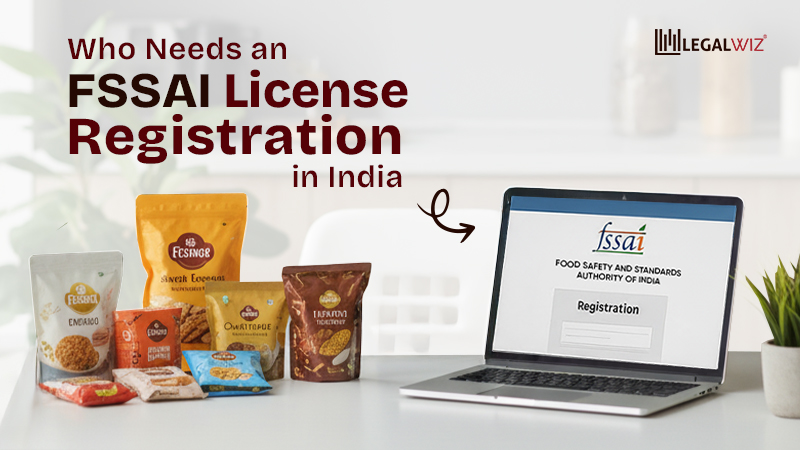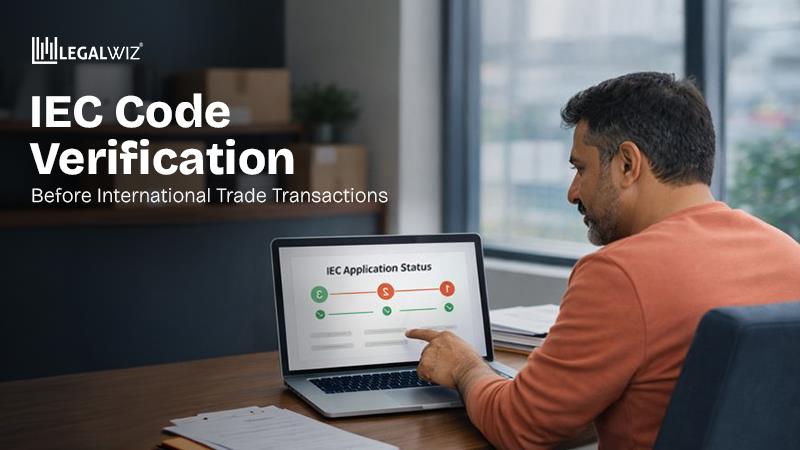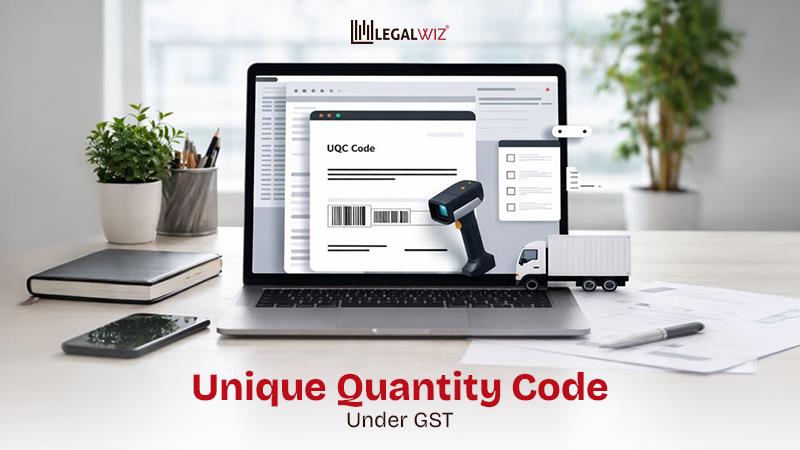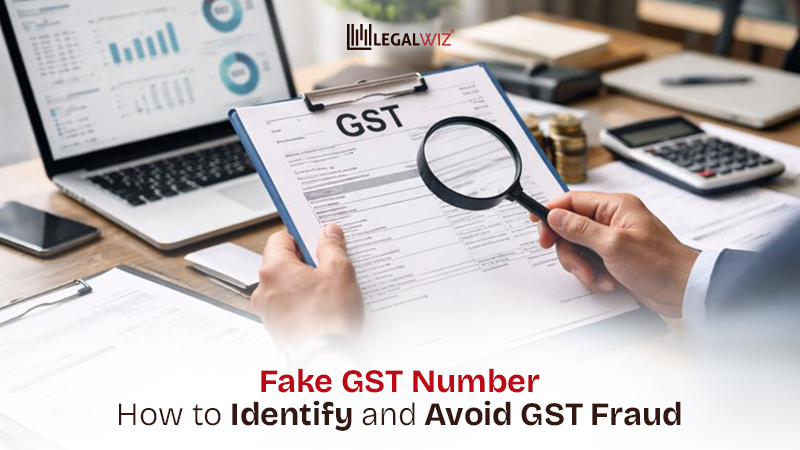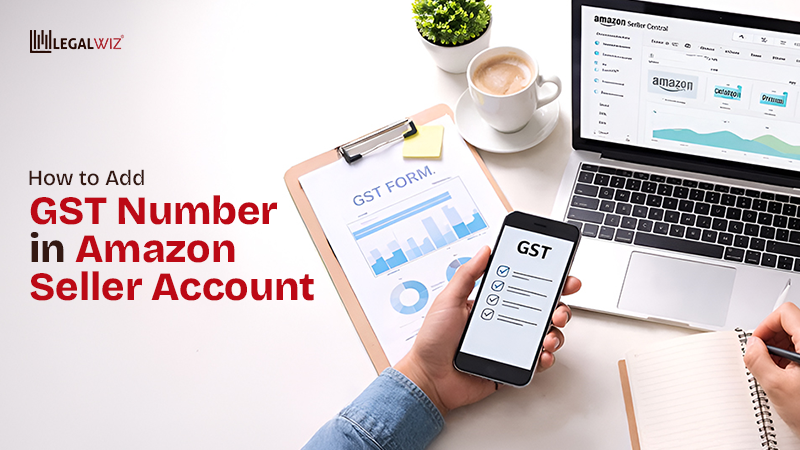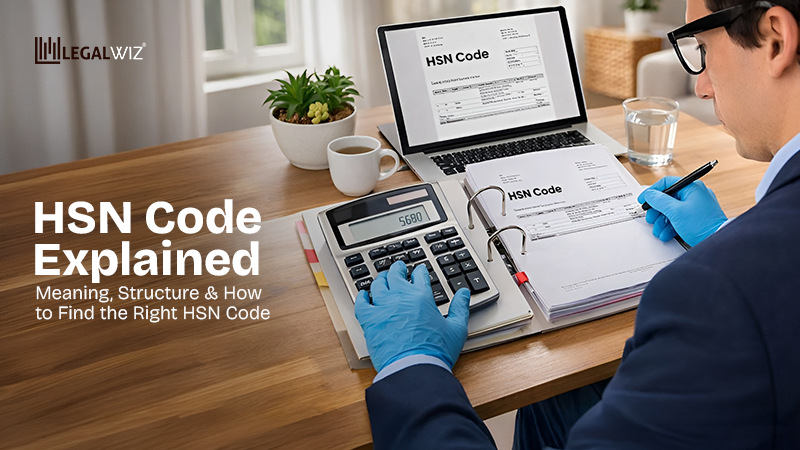Who Needs FSSAI License Registration in India? Eligibility, Fees, and Process Explained
“Safe food, healthy nation.” This isn’t just a slogan. It’s the mission behind India’s food safety laws.
Whether it’s a street stall, bakery, or big food brand, you need FSSAI (Food Safety and Standards Authority of India) approval to operate in India. Millions of food businesses follow this rule. Getting your FSSAI License Registration ensures you stay legal and trusted.
FSSAI sets the rules for hygiene, quality, and safety. When a food business gets registered, it isn’t just about following the law. It’s about assuring customers that what they’re eating is safe.
In this blog, we’ll break down who needs FSSAI license registration in India, what makes you eligible, the fees involved, and how to get an FSSAI certificate.
What is FSSAI License?
FSSAI is India’s food-safety authority, set up under the Food Safety and Standards Act, 2006. Every person (individual or company) involved in food business, whether you’re manufacturing, transporting, selling or storing food, you need to get an FSSAI Registration or License.
FSSAI Registration is a 14-digit registration or a license number which is printed on all food packages. The 14-digit registration number carries important information like the state of registration and the specific details of the food business operator.
FSSAI Registration vs License
FSSAI registration or License is determined by a business’s scale, annual turnover, and production capacity. Depending on these criteria, food enterprises may be eligible for Basic Registration, a State License, or a Central License.
Here’s a quick comparison between FSSAI Registration and FSSAI License to help you understand which one your business needs:
| Key Differences | FSSAI Registration | FSSAI License |
| Turnover Criteria | Applicable to businesses with annual revenue up to Rs 12 lakh. | Required for businesses with annual revenue exceeding Rs 12 lakh. |
| Classification | Known as Basic Registration. | Includes Central License and State License categories. |
| Business Scale | Intended for small-scale or petty food business operators. | Designed for medium to large-sized food business operators. |
| Validity Period | Validity depends on the registration type and specific circumstances. | Granted for a term ranging from one to five years. |
| Application Form | Submission through Form A. | Submission through Form B. |
| Registration/License Fee | Fixed fee of Rs 100 per annum. | Fees range between Rs 2,000 and Rs 7,500 annually, based on type and criteria. |
| Display Requirements | Registration number must be displayed at business premises and on product packaging. | The license number must be clearly printed on the packaging, especially for exporters, importers, traders, and producers. |
Who Needs FSSAI License Registration?
Every food business operator must register under Section 31 of the Food Safety and Standards Act, 2006. No person shall commence or carry on any food business without a valid license or registration. The type of license depends on turnover, scale, and business activity. Here’s a detailed breakdown by category:
- Restaurants, Cafés, Hotels, Cloud-Kitchens & Food-Service Establishments.
All eat‑in and takeaway places, plus cloud kitchens and caterers, must be registered. Customers expect safe, hygienic food. - Online And Home Kitchens (Tiffin Services, Small D2C Sellers)
If you cook at home and sell meals online, you still need FSSAI. It builds trust and protects buyers. - Retailers & Essential-Food Traders (Vegetable/Fruit Vendors, Kirana/Grocery Stores, Milkmen, Local Distributors)
The Indian market operates daily through its essential functions of supplying, distributing, retailing, and transporting vegetables, fruits, groceries, and milk. Food business operators need to obtain a valid FSSAI Registration or License to operate these activities. - Food Outlets At Transport Hubs (Airports, Seaports, Railway Stations And On-Board Train Catering)
High footfall areas require strict safety checks, so food vendors at stations, trains, and airports need FSSAI coverage. - Manufacturers, Packers & Repackers (Tea, Coffee, Bakeries, Snack Makers, Dairy & Edible-Oil Processors)
Certification serves as a requirement for all individuals who create, repackage, or sell coffee and tea products because these goods enter substantial market areas. - Operators Of Vending Machines & Automated Food
Operators of food or drink vending machines must register to ensure product safety. - Herbal Products, Nutraceuticals, Health-Supplements & Fortified Foods
With more consumers focused on wellbeing, sellers and manufacturers of supplements and herbal remedies need to meet FSSAI standards – both to prove their health claims and to make sure the products are safe. - Importers & Exporters Of Food Products
Businesses trading food across borders need a central FSSAI license to meet national and international standards. - Food Marketers, Brand Owners And Third-Party Packagers
Companies that market packaged foods or FMCG food items should be registered so products consumers buy are safe. - E-Commerce Platforms & Online Marketplaces (Platform Operators And Sellers)
If you sell food products through online marketplaces such as Swiggy or Amazon, you must follow specific rules about food safety. The main goal of quality control centers on deliver secure products which meet reliability standards to customers. - Catering Companies & Event Caterers (Weddings, Corporate Events, Banquets)
You operate a catering business which provides services for weddings, office parties, and large-scale events. Food safety registration becomes necessary for any establishment that serves food to the public. - Institutional Kitchens (School/College Canteens, Hostel Messes, Hospital Canteens)
The canteens at schools and colleges as well as hostels and hospitals need to obtain proper licensing. The system protects the health of all students and staff members and residents who use the facility. - Retail Food Outlets & Quick-Service Restaurants (Supermarkets, Juice Bars, Qsrs)
Supermarkets need to register along with juice bars and quick-service restaurants. The certification system enables customers to determine product safety and quality standards. - Food Manufacturers
Bakeries, confectioneries, snack makers, dairy processors and oil packers all need FSSAI certification. - Meat, Fish & Poultry Businesses (Slaughterhouses, Processors, Retail Meat/Fish Shops)
Retailers, processors and exporters of meat and seafood must register due to the stricter hygiene needs. - Agricultural Produce Traders, Commission Agents & Wholesalers (Fruits, Vegetables, Grains)
Dealers, exporters and importers of fruits, vegetables and crops must comply with FSSAI norms. - Milk & Dairy Units (Chilling Units, Dairy Processing, Milk-Collection Centres)
Chilling units, dairy plants and milk product manufacturers need appropriate licenses to ensure milk safety. - Corporate & Hospital Canteens (Large Institutional Feeders)
Any large institutional kitchen feeding many people should be registered for safety and accountability. - Food Transporters, Cold-Chain Operators & Logistics (Refrigerated Vehicles, Warehousing)
If you transport food (from factory to store or consumer), you must meet FSSAI transport and storage rules. - Small & Micro Food Units / Petty Manufacturers (Micro Producers, Hawkers And Itinerant Vendors)
Even micro‑manufacturers (turnover up to ₹12 lakh/year) must register — small size doesn’t mean exempt.
Eligibility for FSSAI Registration
Small Food Business Operators (FBOs) are eligible to apply for FSSAI registration.
This includes:
- Those who manufacture or sell food items directly or through retailers, hawkers, itinerant vendors, or temporary stalls.
- Those who distribute food at religious or social gatherings, excluding caterers.
- Small-scale or cottage food industries and tiny food businesses with an annual turnover up to ₹12 lakh.
Specific eligibility includes:
| Food business type | Eligibility/limit |
| Food production units (excl. milk & meat) | Up to 100 kg/litre per day |
| Milk procurement or handling | Up to 500 litres/day or 2.5 MT milk solids/year |
| Vegetable oil processing (solvent/expeller) | Up to 100 kg/litre per day |
| Meat processing units | Up to 100 kg/day or 30 MT/year |
| Slaughterhouses | Up to 2 large animals or 10 small animals, or 50 poultry birds per day |
| Other food processing (including repackers) | Up to 100 kg/litre per day |
| Cold storage units (non‑controlled atmosphere) | Turnover up to ₹12 lakh/year |
| Wholesalers/retailers/distributors/suppliers | Turnover up to ₹12 lakh/year |
| Dhabas/food vendors/clubs/canteens | Turnover up to ₹12 lakh/year |
| Hotels & restaurants | Turnover up to ₹12 lakh/year |
| Food transporters | Turnover up to ₹12 lakh/year |
Eligibility for FSSAI License
FSSAI licenses are for Food Business Operators (FBOs)that don’t qualify as small food businesses. These are for medium and large food businesses that exceed ₹12 lakh turnover or operate in high-risk categories, with the type—State or Central—based on scale, scope, and location of operations.
| Food Business Type | State FSSAI License | Central FSSAI License |
| Dairy/Milk chilling | Handles 501–50,000 litres/day or 2.5–2,500 MT milk solids/year | Handles more than 50,000 litres/day or 2,500 MT milk solids/year |
| Vegetable oil units | Up to 2 MT/day or turnover above ₹12 lakh | More than 2 MT/day |
| Slaughtering units | Large animals 3–50, Small animals 11–150, Poultry 51–1,000/day | Large animals above 50, Small animals above 150, Poultry above 1,000/day |
| Meat processing | Up to 500 kg/day or 150 MT/year | More than 500 kg/day or 150 MT/year |
| Food processing & repackers | 101 kg/litre – 2 MT/day, includes grains, pulses, cereals | More than 2 MT/day, excluding grains, cereals, pulses |
| Proprietary food makers | Not applicable | All |
| 100% export units | Not applicable | All |
| Importers | Not applicable | Food items, ingredients, additives for business use |
| Storage units | Up to 50,000 MT; cold/refrigerated above 10,000 MT | Above 50,000 MT; cold/refrigerated above 10,000 MT; controlled atmosphere + cold above 1,000 MT |
| Wholesalers | Turnover up to ₹30 crore/year | Turnover above ₹30 crore/year |
| Retailers, distributors, suppliers, caterers | Turnover up to ₹20 crore/year | Turnover above ₹20 crore/year |
| Dhabas, clubs, canteens, food vending | Turnover up to ₹12 lakh/year | Not applicable |
| Hotels | 3–5 star rating | 5-star and above |
| Restaurants & marketers | Turnover up to ₹20 crore/year | Turnover above ₹20 crore/year |
| Transporters | At least 100 vehicles or turnover up to ₹30 crore/year | More than 100 vehicles or turnover above ₹30 crore/year |
| Central govt agencies | Not applicable | Storage, wholesale, retail, distribution, catering (like Defence) |
Documents Needed for FSSAI Registration and License
1. Basic Registration (Form A)
For small food businesses or very small operators, these documents are required:
- Address proof of the authorized person
- Passport-size photograph
- Name and address of the business
- Nature of business details
- FSSAI declaration form
2. State License (Form B)
For medium-sized businesses, you need to submit:
- Rental agreement or proof of business premises
- A Valid ID of the individual applying. It could be an Aadhar card, Passport, Voter ID or a driving license.
- Business Registration Documents such as certificate of incorporation, business PAN card, GST, Shop & Establishment Certificate or a trade license.
- If you’re a company or partnership, add the MOA & AOA or the partnership deed.
- Also include at least one local license (trade license, Shop & Establishment, or a license from the local civic body).
- Nature of business details
- FSSAI declaration form
Additional documents for manufacturers or repackers:
- Photos of the manufacturing unit
- Plant layout
- Machinery details with capacity and horsepower (on company letterhead)
- Product details (on company letterhead)
3. Central License (Form B)
For large businesses or those involved in import/export, the following documents are needed:
- Rental agreement or proof of business premises
- You’ll need a valid ID — Aadhaar, passport, voter ID, or driving license.
- Business papers such as incorporation certificate, PAN and GST, or Shop & Establishment/trade license.
- Company or partnership proof, for example MOA & AOA or the partnership deed.
- IEC (Import‑Export Code) — mandatory for import/export businesses
- Authority letter on company letterhead, authorizing the person filing the application
- List of food categories proposed to be manufactured (for manufacturers)
Additional documents for manufacturers:
- Photos of the manufacturing unit
- Plant layout and product details
- Machinery details with capacity and horsepower (on company letterhead)
- Water testing report (compulsory for mineral water plants)
FSSAI License Registration Process
Getting your FSSAI license or registration is easier than it seems if you follow the proper steps. Here’s how the process works for food business operators:
1. Access the Portal
Start by visiting the official FSSAI portal at FoSCoS. You’ll need to sign in using your username and password. If you don’t have an account yet, you can register as a new user.
2. Choose the Type of Application
Once logged in, select “Apply & Generate License/Registration” from the side menu. Choose whether you need a registration or a license depending on your business type and scale.
3. Select State and Business Category
Pick the state where your business operates from the dropdown list. Then select the Kind of Business (KOB). Click Proceed to continue.
4. Fill in the Application Form
- For basic registration, complete Form A with your business details, like owner info, address, and type of food products.
- For a license, fill Form B, which asks for extra details such as production capacity, turnover, and other regulatory information.
5. Upload Documents
Upload all supporting documents, such as identity proof, business proof, and any state-specific papers. Make sure all documents are self-attested by the proprietor or authorized signatory.
6. Payment of Fees
Pay the FSSAI fees online using the available modes. Once payment is successful, you’ll get a receipt with a 17-digit reference number. Keep this number for your records.
7. Application Verification
After submission, FSSAI will review your application. For licenses, they may inspect your premises to check hygiene, storage, and processing standards.
8. Issuance of License or Registration
Once everything is verified, FSSAI will issue your license or registration. Your license number must be printed on every food package and displayed prominently at your place of business, as per Regulation 2.1.14
FSSAI License Registration Fees
One of the first questions for any food business owner is: how much will FSSAI registration or license cost? The fees depend on the type of license and the scale of your business. Here’s a simple breakdown:
| License Type | Annual Turnover | FSSAI Fees |
| Basic Registration | Up to ₹12 lakh | ₹100 per year |
| State License | ₹12 lakh – ₹20 crore | ₹2,000 – ₹5,000 per year (varies by state) |
| Central License | Above ₹20 crore or specific categories (importers, large manufacturers, FBOs in multiple states) | ₹7,500 per year |
Final Takeaway: Protect Your Business Legally
FSSAI registration isn’t just about paperwork; it represents your commitment and care about food safety and the customers. Be it any business that you are running, a cloud kitchen, a cafe or a food manufacturing unit, you have to stay compliant. This will not only protect you legally but will also build trust among your audience.
Without FSSAI license, you are looking at fines, operational roadblocks and hurdles to your business growth. Many food business owners delay registration because they’re unsure which license to get or how to complete the process.
That’s exactly where LegalWiz.in can help. We take care of your FSSAI registration from start to finish, guiding you with what license is right for you, organizing your documents and submitting them correctly. Get started with LegalWiz.in today and stay focused on building your business while we handle compliance for you.
Frequently Asked Questions
How long to get an FSSAI certificate?
Basic registration usually comes through in 7–10 working days. If you need a state or central license, expect 30–60 days — inspections and verification can extend the timeline.
Do online food sellers need FSSAI registration?
Yes. Selling on Swiggy, Zomato, Amazon or your own site still needs FSSAI registration or a licence. It’s not optional.
What happens if a business operates without an FSSAI license?
Operating without an FSSAI license attracts a penalty up to ₹5,00,000 and possible imprisonment under Section 63 of the FSS Act, 2006.
Can I renew my FSSAI license before it expires?
Yes. You need to renew your license at least 30 days before it expires. Timely renewal avoids penalties and ensures uninterrupted operations. Late renewal beyond expiry requires a fresh application, and any operation during that gap is considered unlicensed.
Are there specific licenses for high-risk food businesses?
There are. If your business involves meat, dairy, or fish egg etc you’ll likely need a state or central license, even if your turnover is on the lower side. It’s more about the nature of the product than your revenue.
How can I check if my FSSAI license is valid?
- Open the Food Safety Connect app or go to the FoSCoS website.
- Tap/find the license verification or search tool.
- Enter your 14‑digit FSSAI license number.
- Then enter the captcha

Avani Kagathara
Avani Kagathara brings order to legal chaos as a Content Writer at LegalWiz.in. Armed with an accounts and audits background, she has a knack for making complex legal topics feel less intimidating. Fair warning: she's equal parts thoughtful analyst and spontaneous free spirit.
